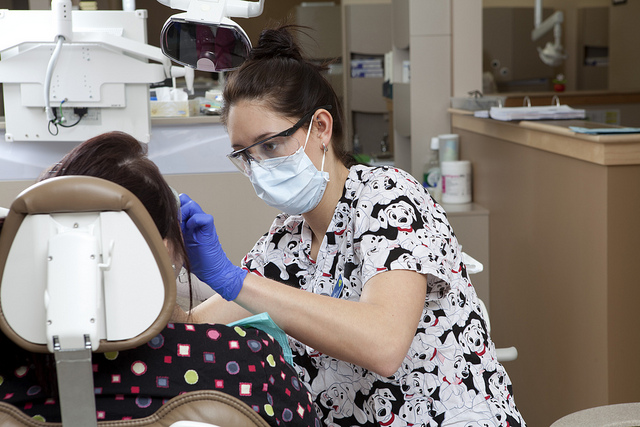As a small business owner, finding the right type of financing for expansion or equipment is paramount to the long-term success of your business. This is especially true in the medical field. With the rapid advancement of technology, medical and dental equipment can become obsolete in a relatively short period of time; therefore, it is imperative to have access to the funding that you will need to acquire the necessary equipment to ensure the success of your business.
The Primary Options Available
While there are multitudinous options available to secure funding, a small business loan and a business line of credit are the two most-viable options; however, there are some things that you should consider before making a decision on which method is best for you and your company.
Renewability of the Process
Acquiring a business loan is a one-time occurrence, whereas a line of credit is renewable at the end of the term. You will only be able to use your business loan once while a line of credit can be used as needed. You simply repay the business loan, whereas you manage the line of credit.
Timing and Necessity
When you apply for a business loan it is because you need it for a specific reason: subsequently, the loan is attached to an urgent and specific need. As a general rule businesses apply for a line of credit prior to a need being present. It places the business in a position to make the necessary purchases as the need arises. Business loans are normally specific to a particular need, and a line of credit can be spent on whatever the business owner deems necessary.
Payment Schedule and Amounts
A business loan’s payments are based on the entire amount of the loan, and they are generally initiated immediately; however, the payments on a line of credit are based on how much of that line of credit is used at any given time. In other words, the business only pays on the amount that has been spent. The monthly payment of your loan is fixed at the time the loan is issued. The payments on the line of credit are treated like a revolving account, meaning that they correspond with the amount owed.
Closing Cost Vary
There are fees and closing costs associated with a business loan and a line of credit; however, the cost and fees for the line of credit are considerably lower than those for the small business loan. While there are exceptions to this rule, the closing costs for the typical small business loan can range anywhere from two to seven percent while closing costs for a line of credit will be minimal if any.
When discussing cost it is also paramount that you understand that loans are usually interest-rate driven while a business line of credit is not as rate-sensitive as a business loan.
Finding the Right Lender
Most business owners will have a limited perspicacity of funding and the lending process. This is why it is extremely important to collaborate with a lender that is customer-service oriented. Choosing a lender that is proactive guarantees that you will have the assistance that you need to help make the best possible choice on whether a line of credit or a business loan is best for you. Lenders, such as BCC Business Credit & Capital, have the resources and experience that allows them to ensure that their customers are provided with the financial products that are conducive to achieving optimal success.
Having the funding to buy medical equipment is vital to the growth process of the business; furthermore, it enhances the ability of the practice to effectively serve the patients.

